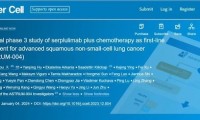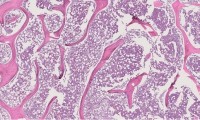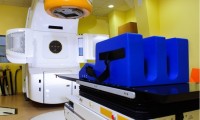-
Hengrui’s Innovative Drugs Piratinib and Dalsili Breast Cancer Indications Both Recommended by 2024 CBCS Guidelines
- Source: drugdu
- 163
- January 7, 2024
-
HANSIZHUANG Combined with Chemotherapy for the First-line Treatment of sqNSCLC
- Source: drugdu
- 84
- January 7, 2024
-
Machine Learning Model Calculates Chemotherapy Success in Patients with Bone Cancer
- Source: drugdu
- 94
- January 6, 2024
-
AI Tool Rapidly Analyzes Gene Activities in Medical Images to Highlight Hidden Cancers
- Source: drugdu
- 90
- January 5, 2024
-
Nearly three million people received urgent NHS cancer checks in 2023
- Source: drugdu
- 127
- January 5, 2024
-
Cancer Test Could Allow More Patients to Benefit from Immunotherapy
- Source: drugdu
- 191
- January 3, 2024
-
Amgen’s request for full approval of Lumakras in lung cancer denied by FDA
- Source: drugdu
- 209
- January 1, 2024
-
$15 million NCI grant awarded to investigate a type of radiation therapy for hard-to-treat cancers
- Source: drugdu
- 193
- December 30, 2023
your submission has already been received.
OK
Subscribe
Please enter a valid Email address!
Submit
The most relevant industry news & insight will be sent to you every two weeks.













